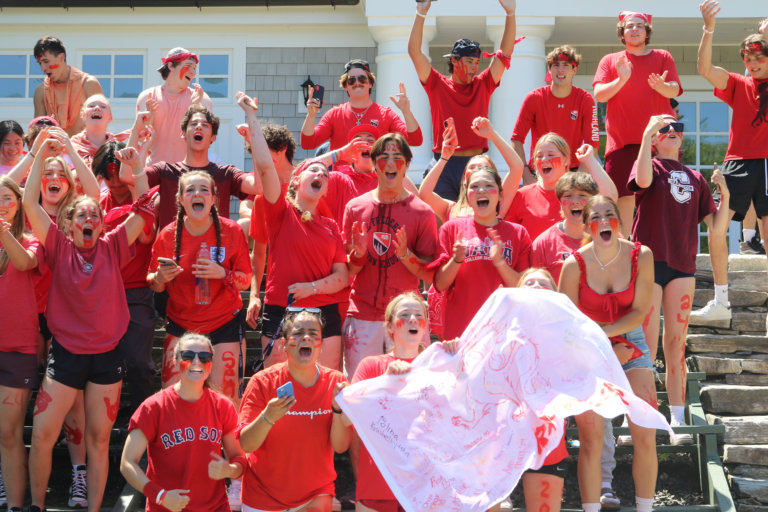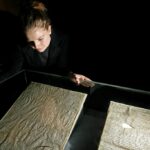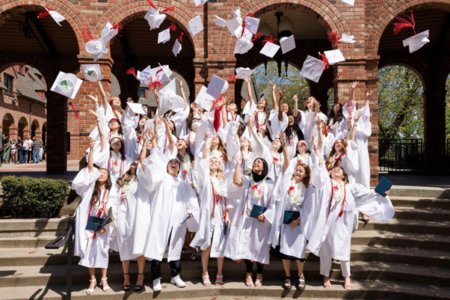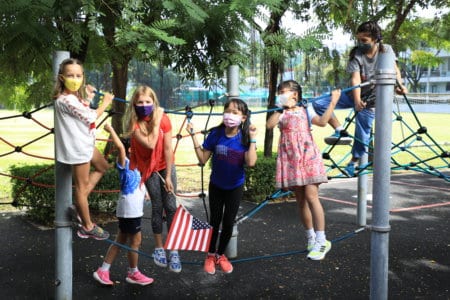
Statistics speak volumes when it comes to the transformative power of a boarding school experience. For example, the Association of Boarding Schools found that 78% of boarding school students feel prepared for college versus 36% of private day students and 23% of public students.
Their trajectory is equally remarkable. In fact, 44% find themselves in top management positions by mid-career, a testament to the exceptional leadership and problem-solving skills they developed as boarders. Their success is no coincidence, as boarding schools in the US, for generations, have honed a holistic approach to education, recognising that true accomplishment is not merely measured by test scores but by the strength of students’ character and adaptability in the face of an ever-changing world.
Indeed, choosing the right boarding school is an investment in a future of unparalleled opportunity and achievement. It’s a decision that transcends the classroom, shaping individuals who not only excel academically but thrive as leaders, innovators, and global citizens capable of making a lasting impact on the world stage. These three schools are proof of that:
The Frederick Gunn School

Preparation for college begins the moment a student steps foot on The Frederick Gunn School’s campus through the school’s 4-year college counselling program. Source: The Frederick Gunn School
Established in 1850 by pioneering educator Frederick Gunn, The Frederick Gunn School is a coeducational boarding and day school for students in grades nine to 12, as well as a post-graduate year. Located in Washington, CT, just a couple hours away from bustling New York City, it is currently home to 325 learners representing over 25 states and more than 20 countries — 80% call the school “home” as proud boarders.
Here, the aim is to ensure each student develops the lifelong learning and leadership skills needed to be active, responsible citizens, both locally and globally. Embracing timeless educational principles, it prioritises a holistic approach to student development with an emphasis on challenging academics, character development, curiosity, risk-taking, problem-solving, and independent thinking. The journey commences within the classroom yet extends purposefully into every facet of the on-campus experience.
Its innovative learning ecosystem is built around four distinctive pillars: risk-taking and innovation, learning yourself and how to learn, public character and active citizenship, and a sense of rootedness and place. These foundational principles guide campus-wide initiatives, exemplified by programmes that effortlessly put pillars into action.
The Centre for Citizenship and Just Democracy is a four-year curriculum central to each student’s development, where the focus is put on reasoned dialogue and rational debate. In the classroom, the Innovation, Design, Engineering and Applied Scholarship programme is a collaborative curriculum that crosses the boundaries of engineering, science, math and business.
Through the Centre for Entrepreneurship, students develop skills that undoubtedly matter for life — self-awareness, creativity, ability to assess risk, team orientation, resilience and being proactive. Outside the classroom, Gunn Outdoors is an on-campus cornerstone experience, promoting outdoor life and allowing students further opportunities to take risks, problem solve and lead in a world that won’t conform to their every desire.
With a focus on meeting students at their individual starting points and propelling them forward, it’s clear The Frederick Gunn School is dedicated to preparing individuals for the challenges and triumphs that await them in college and beyond. Click here to learn more.
The Hun School of Princeton

At The Hun School of Princeton, students are encouraged to explore, try new things, and dare to fail — both in and out of the classroom. Source: The Hun School of Princeton
If you’re looking for a school that balances learning, culture and support, then The Hun School of Princeton fits the bill. Here, learning takes the form of exploration, trying new things and daring to fail — both in and out of the classroom. Be it Arabic, Bioethics, Engineering Design, or Multivariable Calculus, Upper School students not only examine the principles of that course, they also forge these seven skills: creativity, cultural competency, collaborative problem solving, critical thinking, ethical decision making, effective communication, and leadership skills.
Academic support here is unparalleled. Students have one-on-one access to all their teachers for a whole period every day, complementing the active mentorship offered as part of a Hun education. More importantly, they care — genuinely — for the success of their students.
That’s not all. For three weeks, freshmen, sophomores, and juniors participate in NextTerm, immersive, project-based, credited courses designed to offer a deep exploration of real-world topics. These fall outside the constraints of traditional disciplines and fuse resources both on and off campus. It culminates in a project that is shared with professional advisors, parents, and faculty during NextPo, the NextTerm project exhibition event.
Whether in academics or arts, athletics or leadership, Hun students thrive in an environment where the spirit of kindness and possibility reign together. They can seek out the fullest range of their abilities and interests, supported every step of the way. Passion can take flight, unrestricted by unnecessary competition that dog other elite schools. Rather, The Hun School provides a safe environment that liberates curiosities and lets students go deeper with the material. To learn more about The Hun School difference, click here.
Choate Rosemary Hall

At Choate Rosemary Hall, teachers and peers support students throughout their time at the school. Source: Choate Rosemary Hall
Located in the scenic town of Wallingford, Connecticut, Choate Rosemary Hall is a co-educational boarding and day school for students grades nine to postgraduate.
Students are prepared to take on college and life with the school’s support, programmes and expertise. Academic exploration is encouraged here, with diverse perspectives, cultures, and student experiences valued. Choate is just the right size, with an authentic community and unparalleled facilities to make this possible.
In short, Choate is a school where students are undefinable. With a vast array of opportunities, studies and activities, combined with support and guidance from campus adults, there is no need for students to be constrained by one thing — be it sport, passion, or identity.
Signature Programmes let students build upon their interests and talents further. From Advanced Robotics to Arabic and Middle Eastern Studies (AMES), each option is completely immersive. There is also the Capstone Programme, where students use their creativity and curiosity to chart a concentrated course of study that culminates in a final project during the spring term of the sixth form year. Past concentrations have included China-US Relations, The Art of Dissent, and Preventable Exploitation in the Developing World.
Choate is an intellectually inquisitive community where students can widen their worlds and explore many different passions. They have the full support of faculty members ready to guide them in stretching their discoveries and passion in any area. If you seek an education that brings big changes and impressive transformations, learn more about Choate Rosemary Hall here.
*Some of the institutions featured in this article are commercial partners of Study International










